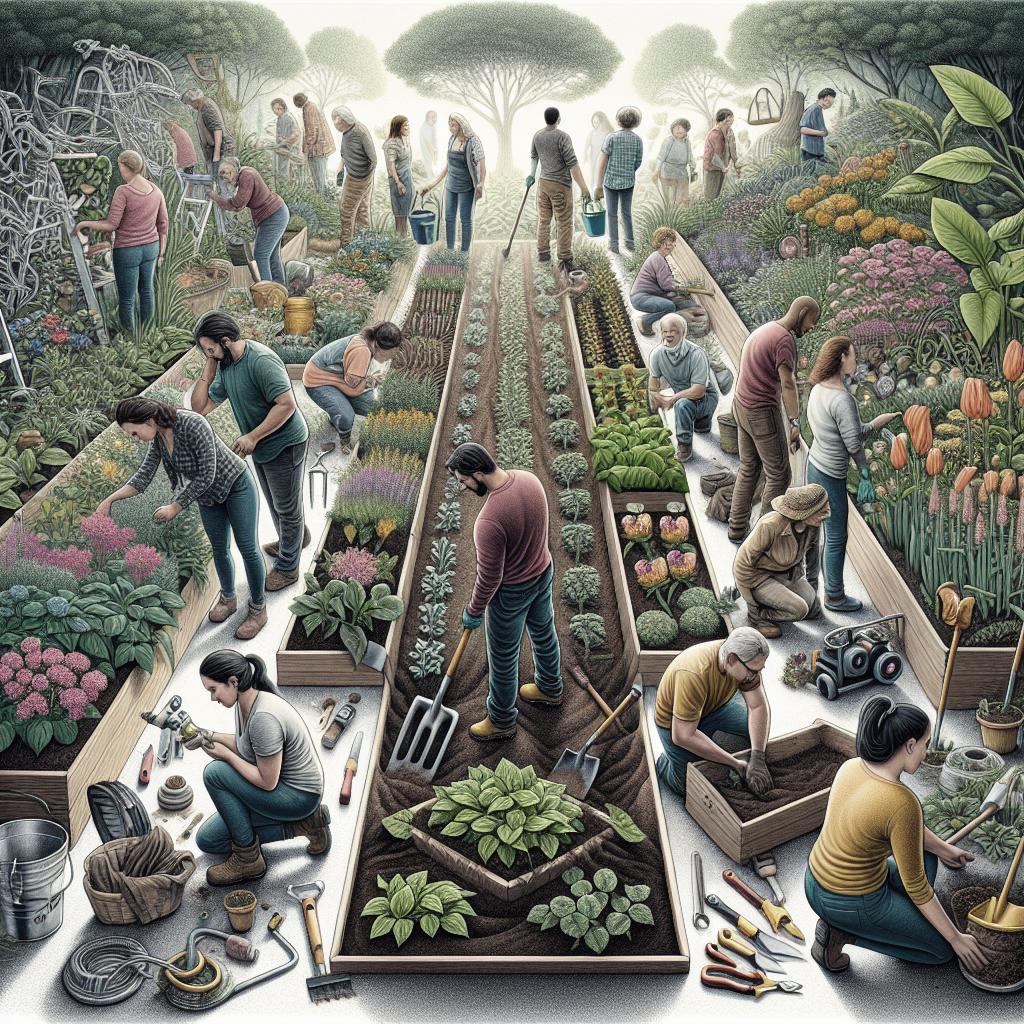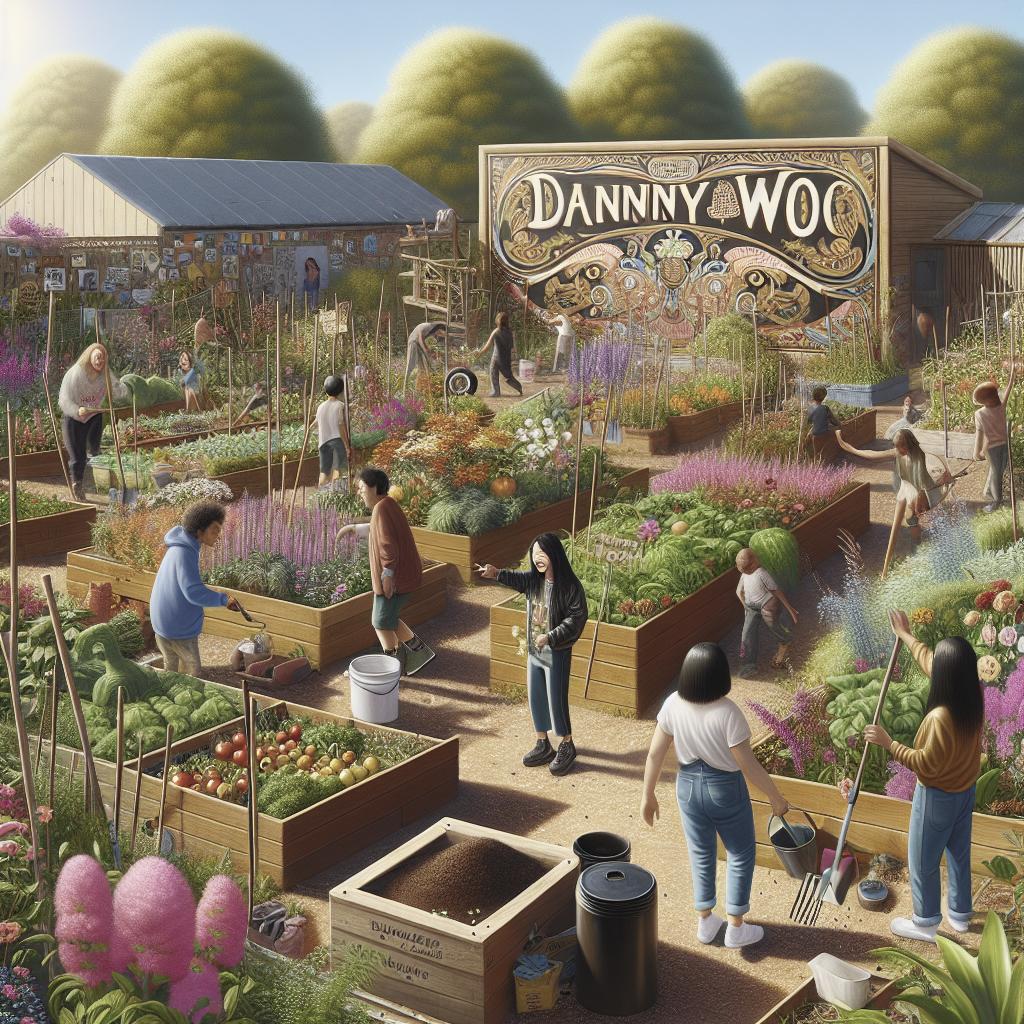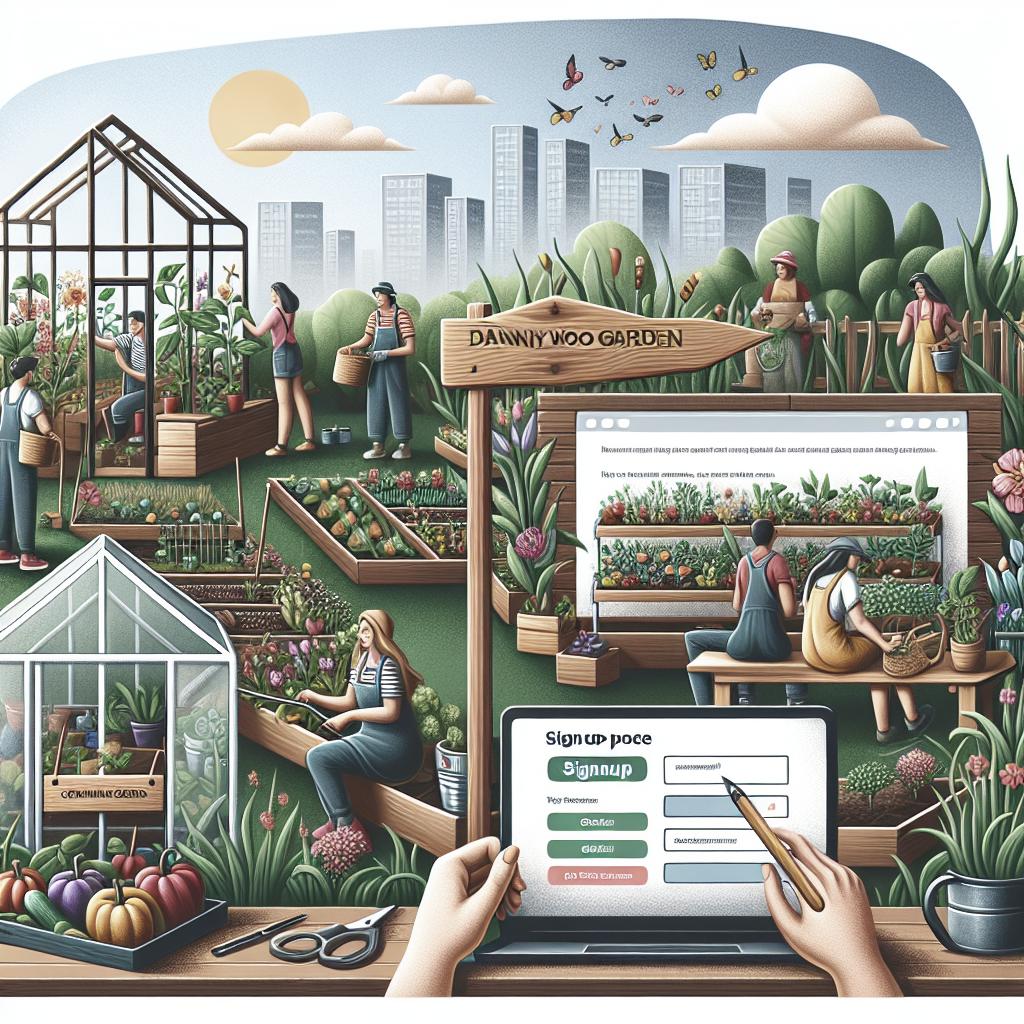“`html
In the heart of Seattle’s Chinatown-International District lies a verdant oasis that stands as a testament to community spirit and dedication. Known as the Danny Woo Community Garden, this green escape offers far more than just a place for people to cultivate plants. It’s a multicultural hub, a platform for volunteerism, and a living homage to a man who believed in the power of communal growth. Tucked away confidently behind a line of towering trees near the bustling Interstate 5, the garden is often overlooked but serves as a vibrant jewel in Seattle’s urban landscape. This article delves into the fostering of this extraordinary community garden, the essence of its namesake, and the crucial role of volunteers in maintaining its beauty and purpose.
Our Story
Tucked behind a row of tall trees up against Seattle’s busy Interstate 5, it is easy to miss. This community garden is anything but ordinary.
The origin of the Danny Woo Community Garden is rooted in deep community ties and a desire to improve urban living conditions. Created in 1975, the garden is a sanctuary for many residents of the Chinatown-International District. At a time when the district faced numerous socioeconomic challenges, the idea of converting an unused plot of land into a thriving garden seemed aspirational yet necessary. It provided a space where residents could grow their own food, thereby supplementing their diets with fresh, homegrown produce while also fostering a sense of community.
Named after Danny Woo, a local restaurateur who donated the land for its creation, the garden transcends the typical community garden concept. Danny Woo himself was a cherished figure in the Chinatown-International District, known for his generosity and unwavering support for community initiatives. To him, this garden was not just about cultivating plants but nurturing a sense of belonging and mutual aid among the residents. Over the years, this ethos has continued to guide the garden’s evolution, making it a beloved institution in the neighborhood.
Danny Woo Garden
VOLUNTEER
The heartbeat of the Danny Woo Community Garden lies in its volunteers, whose collective effort keeps this green space vibrant and functional year-round. From maintaining the terrain to organizing events and educational programs, the contributions are both varied and indispensable. Volunteers can be spotted on any given weekend, kneeling in the soil, planting seeds, or engaging with community members. These individuals come from all walks of life, unified by a shared commitment to community improvement and environmental stewardship.
Volunteerism at the Danny Woo Garden is not just an act of service but an enriching experience for those involved. Participants often speak of the sense of fulfillment they get from contributing to a project that tangibly impacts their community. Additionally, the garden offers workshops and training sessions focusing on urban agriculture, sustainability, and cultural heritage, equipping volunteers with skills and knowledge that extend beyond the garden itself. This dual benefit makes the act of volunteering here both impactful and personally rewarding.
Lessons Learned
The creation, maintenance, and evolution of the Danny Woo Community Garden offer invaluable lessons in community engagement, sustainability, and the power of volunteerism. It serves as a vivid reminder that urban spaces can be transformed into hubs of communal activity, fostering a sense of belonging and mutual respect among residents. Danny Woo’s vision of intertwining community spirit with environmental care continues to inspire all who visit and contribute to the garden. Each plant tended, and each seed sown, is a tribute to this vision and the collective effort of countless volunteers.
| Section | Content Summary |
|---|---|
| Introduction | A summary of the origins, essence, and volunteer participation in the Danny Woo Community Garden. |
| Our Story | The history and creation of the garden, its namesake Danny Woo, and community impact. |
| Danny Woo Garden | The crucial role of volunteers, their experiences, and the dual benefits of participation. |
| Lessons Learned | Insights on community engagement, sustainability, and the fulfillment derived from volunteerism. |
“`


